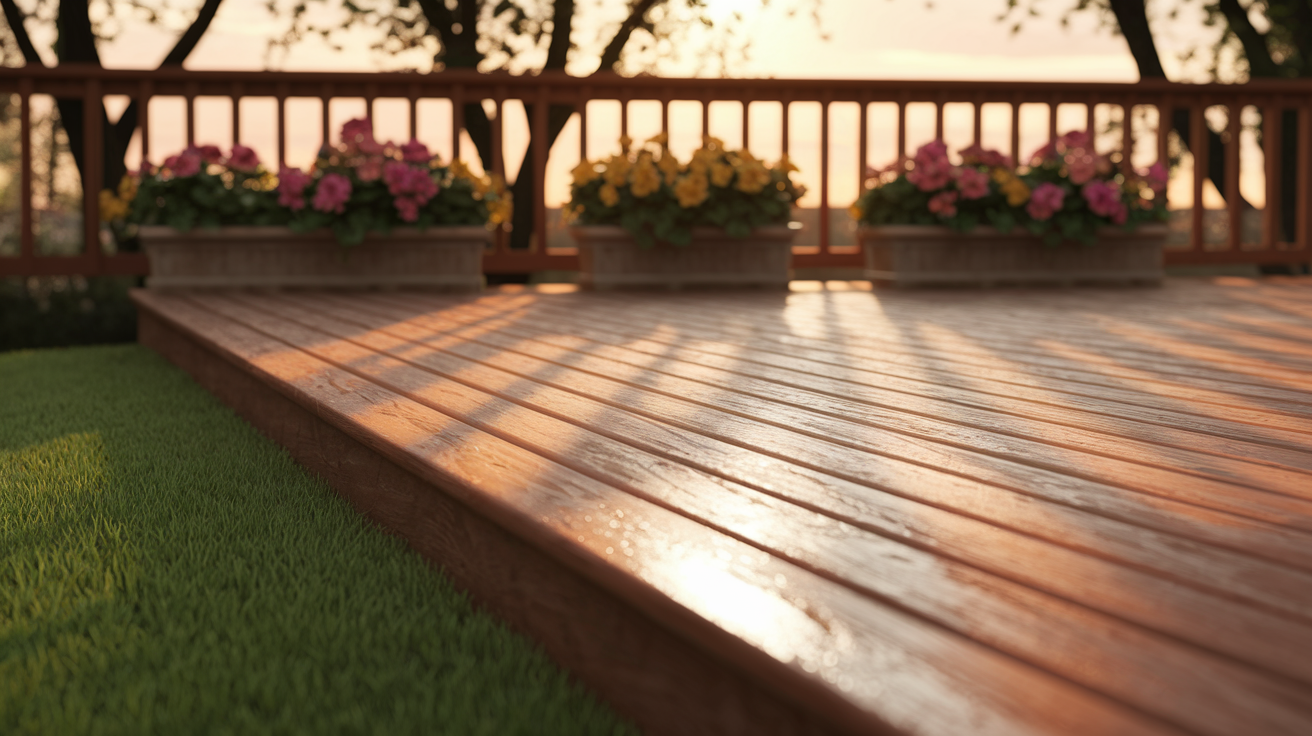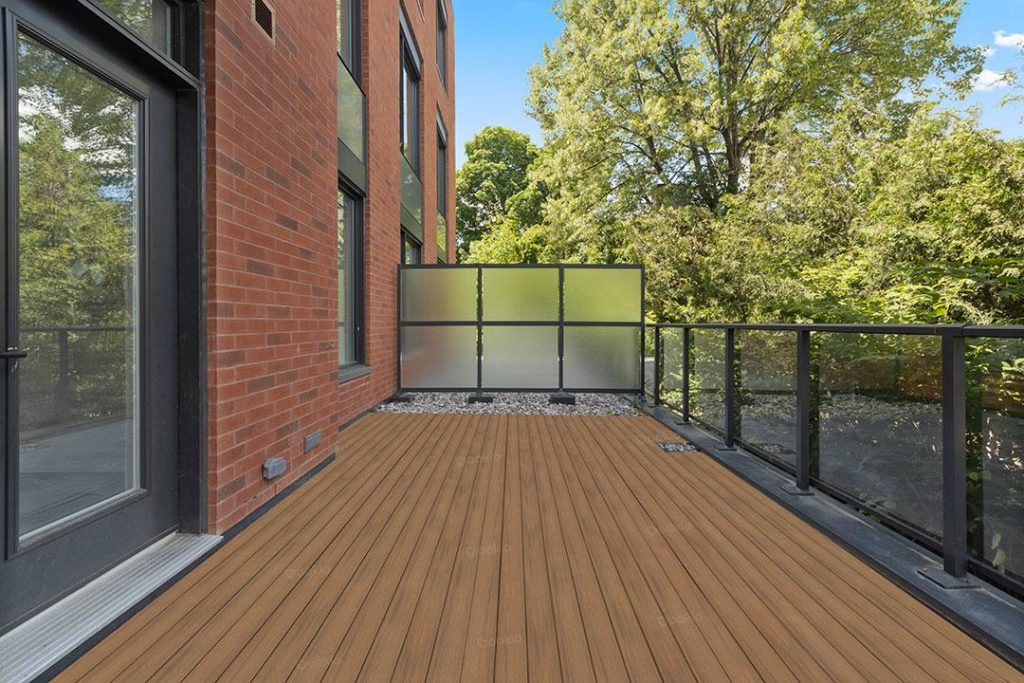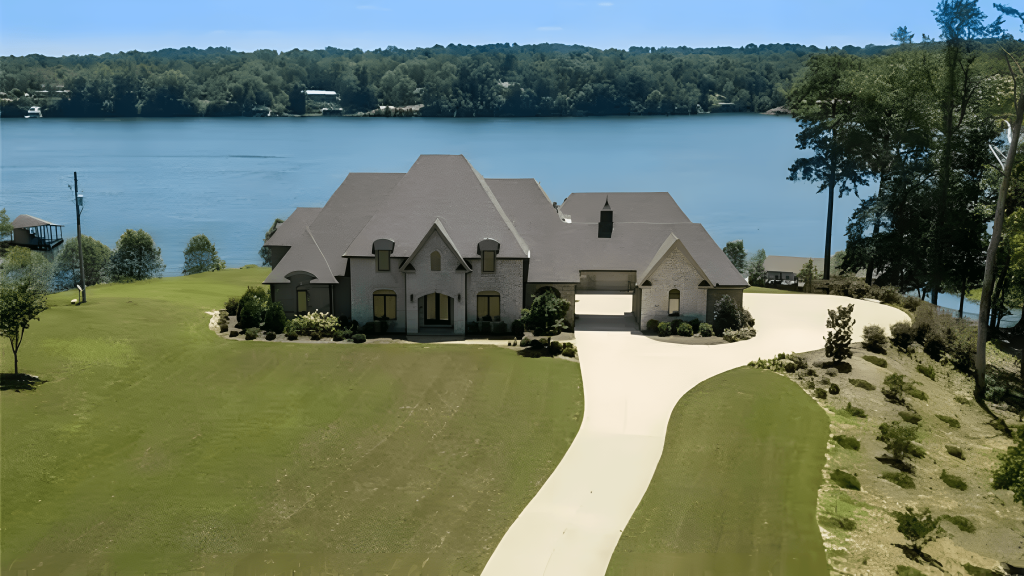Building a deck is an exciting project, but figuring out measurements, materials, and costs can quickly become overwhelming. That’s why I’ve become such a fan of deck calculators—these handy digital tools take the guesswork out of planning your outdoor space.
In this article, I’ll walk you through everything you need about deck calculators and how they can save you time, money, and frustration. You’ll learn how these calculators help determine the amount of lumber, fasteners, and other materials required for your deck dimensions. I’ll also share some tips on finding the most reliable calculators and how to interpret their results for your DIY project or when communicating with contractors.
Understanding the Decking Calculator

A deck calculator transforms complex measurements into precise material estimates for your deck project. I’ve found these digital tools invaluable for planning simple and elaborate outdoor spaces without the headache of manual calculations.
Key Features
Decking calculators offer several practical functions that streamline your planning process:
- Material quantity estimation – Calculate the exact numbers of deck boards, joists, and fasteners
- Cost projection – Get accurate budget figures based on current material prices
- Waste reduction – Account for standard board lengths to minimize offcuts
- Layout visualization – Some advanced deck calculators provide diagram options to visualize the finished project.
- Customization options – Input specific dimensions, board sizes, and joist spacing for your unique design
The best deck calculators include options for different board patterns, such as diagonal, horizontal, or herringbone layouts, which significantly affect material requirements. Most also factor in joist spacing requirements based on your selected decking material.
Exploring Decking Materials
Selecting the right material for your deck impacts its lifespan, maintenance requirements, and overall cost. A deck calculator helps you determine exactly how much of your chosen material you’ll need for your project.
Lumber (Wood) Decking
Wood decking remains popular for its natural beauty and affordability. Cedar, pine, and pressure-treated lumber offer different price points and durability levels. Pine costs $15-20 per square foot installed, while cedar runs $24-30. Using a deck calculator with lumber requires accounting for standard board widths (5.5″ or 7.25″) and factoring in about 10% extra for waste.
Composite Decking
Composite decking combines wood fibers with plastic for a low-maintenance alternative to wood. These materials resist warping, splintering, and fading better than natural wood. Pricing ranges from $28 to $45 per square foot installed, depending on quality and brand. Deck calculators designed for composite materials account for their uniform dimensions and specialized fastening systems, providing precise estimates for your project.
Comparing the Pros and Cons
When planning your deck project with a deck calculator, understanding the advantages and disadvantages of different materials can help you decide what will best suit your specific needs and budget.
Pros & Cons of Wood Decking
Wood decking remains a popular choice for many homeowners because of its traditional appeal and value proposition. A deck calculator can help you determine exact quantities needed based on your deck dimensions.
|
Natural Wood Decking |
|
|---|---|
|
Pros |
Cons |
|
Natural Beauty: Wood has timeless aesthetics with unique grain patterns. It adds warmth to outdoor spaces. Cost-Effective: It is affordable, costing about $15-30 per square foot installed. DIY-Friendly: Wood is easy to install and repair. Highly Customizable: It accepts various stains and finishes to match any design scheme. |
Regular Maintenance: Wood needs annual sealing, staining, or painting to prevent weathering. Susceptibility to Elements: It is prone to rotting, warping, and insect damage without proper care. Limited Lifespan: Wood typically lasts 10-15 years, depending on the type and maintenance. Environmental Concerns: Some wood types come from non-sustainable practices. |
Pros & Cons of Composite Decking
Composite decking offers different advantages and challenges compared to traditional wood. Understanding these factors helps you make the right choice when using your deck calculator to plan your project.
|
Composite Decking |
|
|---|---|
|
Pros |
Cons |
|
Exceptional Durability: Composite decking resists rot, warping, and insect damage over many years. Virtually Maintenance-Free: It requires no staining, painting, or sealing. Long Warranty: Many products come with 15-25 years’ warranties. Environmentally Friendly: Most composites contain recycled materials. Design Flexibility: They offer various colors and styles that mimic natural wood. |
High Upfront Cost: Composite decking costs about 25-30% more than wood, ranging from $28-45 per square foot installed. Heat Retention: It absorbs and retains heat, making it uncomfortable in hot weather. Fading: Some composites may fade over time when exposed to intense sunlight. Specialized Installation: Installation requires specific tools and expertise. Synthetic Appearance: It does not perfectly match wood’s natural look and feel. |
How the Deck Calculator Enhances My Decision Making

Deck calculators transform complex deck planning into straightforward decisions by providing accurate data guiding my project. These digital tools eliminate guesswork and help me make informed choices at every stage.
Simplified Material Estimation
The deck calculator delivers precise quantities of every item I need for my project. I get exact counts of boards, screws, joists, and footings based on my deck’s dimensions. This accuracy reduces my risk of under-ordering materials that cause delays or over-ordering that wastes money. By adding a 5-10% waste allowance to the calculated amounts, I prevent mid-project supply runs while minimizing excess materials.
Accurate Cost Breakdown
A deck calculator’s detailed cost analysis makes my budget planning crystal clear. Based on current market rates, I receive itemized pricing for lumber, hardware, and foundation materials. This breakdown lets me spot where I can trim expenses or where upgrades make sense. The calculator also factors in hidden costs like fasteners and concrete, giving me a true financial picture before I spend a dollar.
Design Customization & Planning
Using the calculator’s visualization features, I can experiment with different deck layouts without commitment. The tool shows me how various board patterns and joist spacing affect aesthetics and material requirements. I’ve tested multiple configurations—changing dimensions, railing styles, and stair placements—to find the perfect balance between appearance and cost. This virtual planning eliminates expensive design mistakes before construction begins.
Long-Term Value and Maintenance Considerations
I always factor in initial and long-term expenses when using a deck calculator. Different decking materials offer varying lifespans and maintenance requirements that significantly impact the overall value of your investment over time.
Evaluating Lifetime Costs
Composite decking lasts 25+ years with minimal maintenance—just occasional cleaning. In contrast, pressure-treated wood decking typically survives 10-15 years but demands annual cleaning, sanding, staining, and sealing every few years. A good deck calculator helps quantify these maintenance costs alongside initial expenses, revealing the true lifetime investment for each material option.
Warranty and Return on Investment
Warranty periods directly correlate with material quality and expected lifespan. Composite decking often comes with 15-25 year warranties, providing better ROI despite higher upfront costs. Wood decking offers lower initial investment but diminished returns due to ongoing maintenance expenses. Using a deck calculator to project these long-term values helps homeowners make financially sound decisions based on their specific timeline and budget constraints.
Conclusion
A deck calculator transforms complex deck projects into manageable tasks by providing precise material estimates and cost projections. These tools eliminate guesswork, saving you money by reducing waste and preventing costly mistakes. With accurate calculations for decking boards, joists, screws, and footings, you’ll avoid mid-project supply runs or overordering materials.
The right calculator accommodates your needs, whether you’re working with traditional wood or modern composite materials. Each material offers distinct advantages—wood provides natural beauty and affordability, while composites deliver long-term durability with minimal maintenance.
Using a deck calculator early in your planning process will give you valuable insights into immediate costs and long-term value. This will help you create an outdoor space that balances your aesthetic preferences, practical requirements, and budget constraints.





















